- Details
LMBT Report
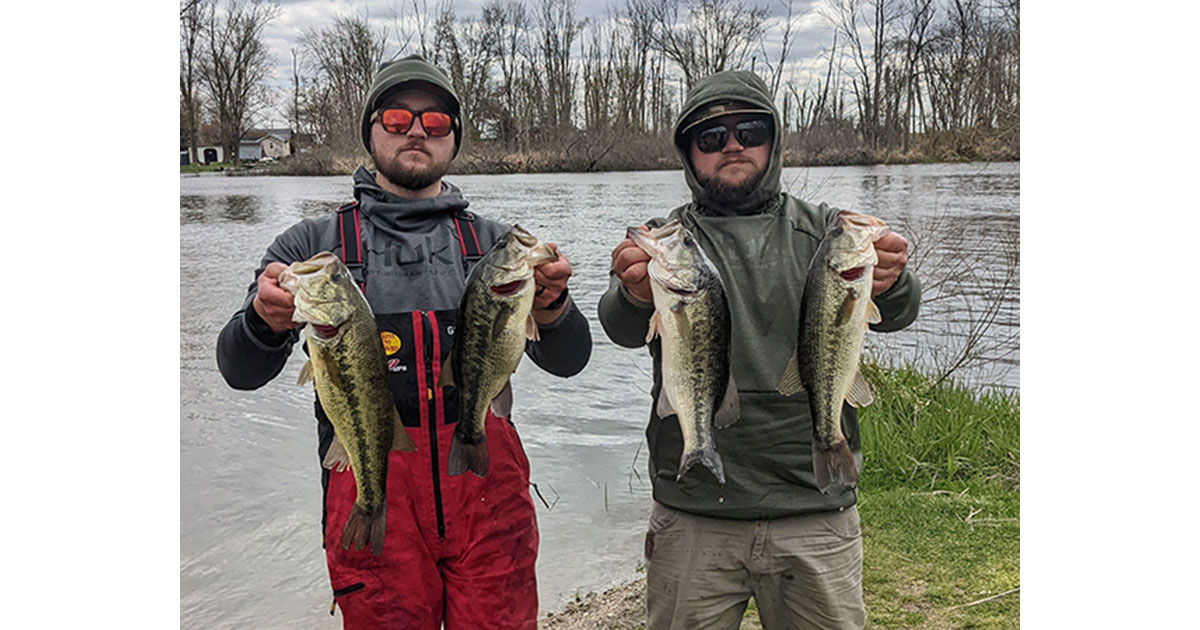 Bo and Blake Boyd - 1st Place
Bo and Blake Boyd - 1st Place
Bo and Blake Boyd captured the Little Money Bass Tournaments (LMBT) season opener on the Waldron Chain – by one ounce.
The Boyds used swim jigs and jerkbaits to catch 14 pounds that was just enough.
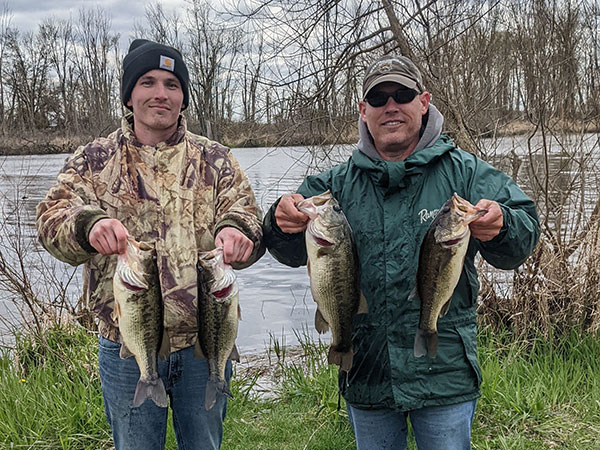 Jeff Crussemeyer and Cameron Crussemeyer - 2nd Place
Jeff Crussemeyer and Cameron Crussemeyer - 2nd Place
Jeff Crussemeyer and Cameron Crussemeyer had 13-15 for second, caught on jigs and Chatterbaits. They also won the big bass pot with a 4-2.
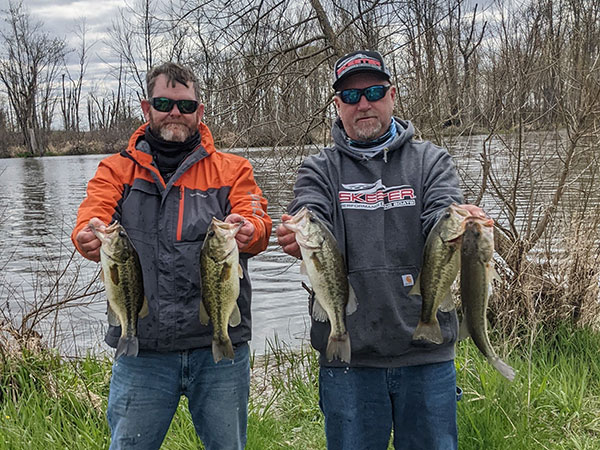 Joe Grandstaff and Todd Mason - 3rd Place
Joe Grandstaff and Todd Mason - 3rd Place
Joe Grandstaff and Todd Mason were a distant third with 10 pounds. They used jigs.
The next tournament is May 18th at Lake Tippecanoe. Visit our Lake Drive Marine Events Calendar for details.
- Details
Casting Couples Report
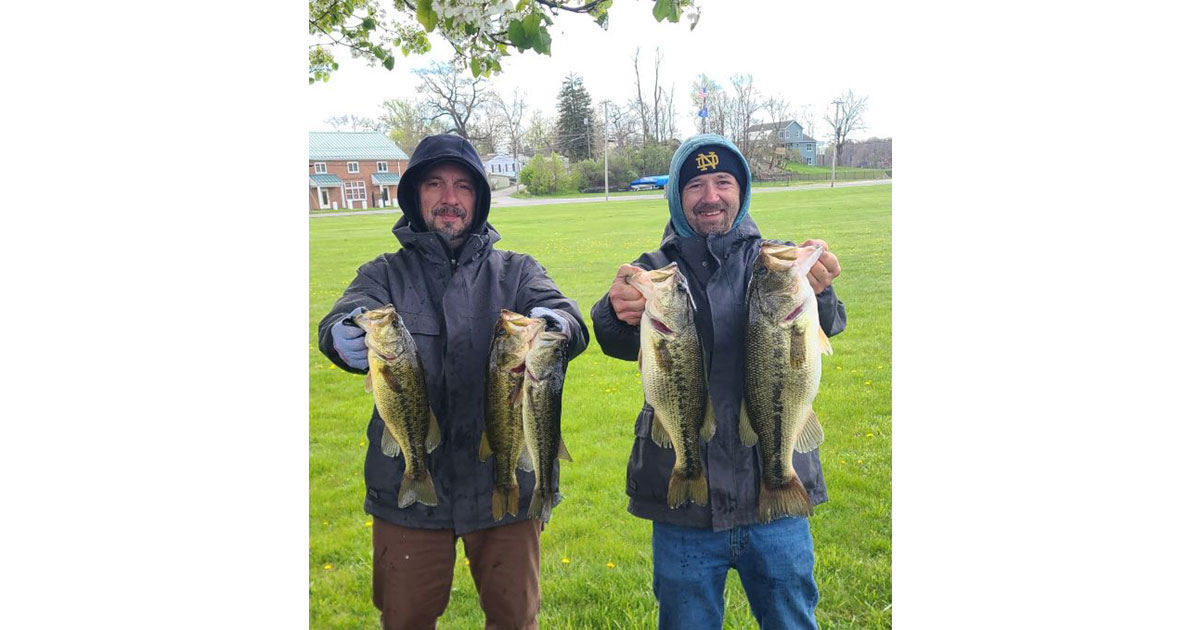 Rick Kedik and Jake Lisenko - 1st Place
Rick Kedik and Jake Lisenko - 1st Place
Rick Kedik and Jake Lisenko had five keeper bass totaling 14.86 pounds to win the Casting Couples Open on Lake Wawasee Saturday.
They beat out eight other teams fishing under blustery conditions to take home $250. They added another $40 for catching the biggest bass of the tournament with a 5.50-pound largemouth. They used jerkbaits on a shallow flat, but once they lost the hot jerkbait on a cast, they never got another bite. They declined to mention the brand and color.
Cassidy and Hurd were second with 13.17 pounds, earning $150. They used tubes and jerkbaits in about 10 feet.
Third place went to Andrew Hankins who fished alone and caught 12.52 pounds by fishing in the shallow backwaters with jigs.
Five teams weighed in limits and at least seven bass were 3 pounds or greater.
Next Regular Casting Couples (male/female) tournament is on Webster Lake May 18th. Contact Rick, 269-240-4917 for info, or Facebook MichianaCastingCouples.
- Details
Michiana Singles Report
Brad Sterling took home $280 in the Michiana Singles weeknight tourney last week on the St. Joseph River in Mishawaka.
Sterling had five bass totaling 7.75 pounds that he caught by fishing wacky-rigged worms in the channels.
Lee Duracz was second ($130) with five bass weighing 7.25 pounds. He also used wacky-rigged worms in the channels.
Chris Hubert caught five for 7.22 pounds to finish third ($70). His sack also included the biggest bass in the event, a 3.11-pound largemouth to earn another $60. Hubert said he fished jigs to catch his fish.
The next Singles weeknight event is at Hudson Lake May 16th at Monroe's Crossing on the east side of the lake and the next Sunday event is on Baldwin Lake June 2. For information about the events or the Michiana Singles format, contact Rick (269) 240-4917.
- Details
By Louie Stout
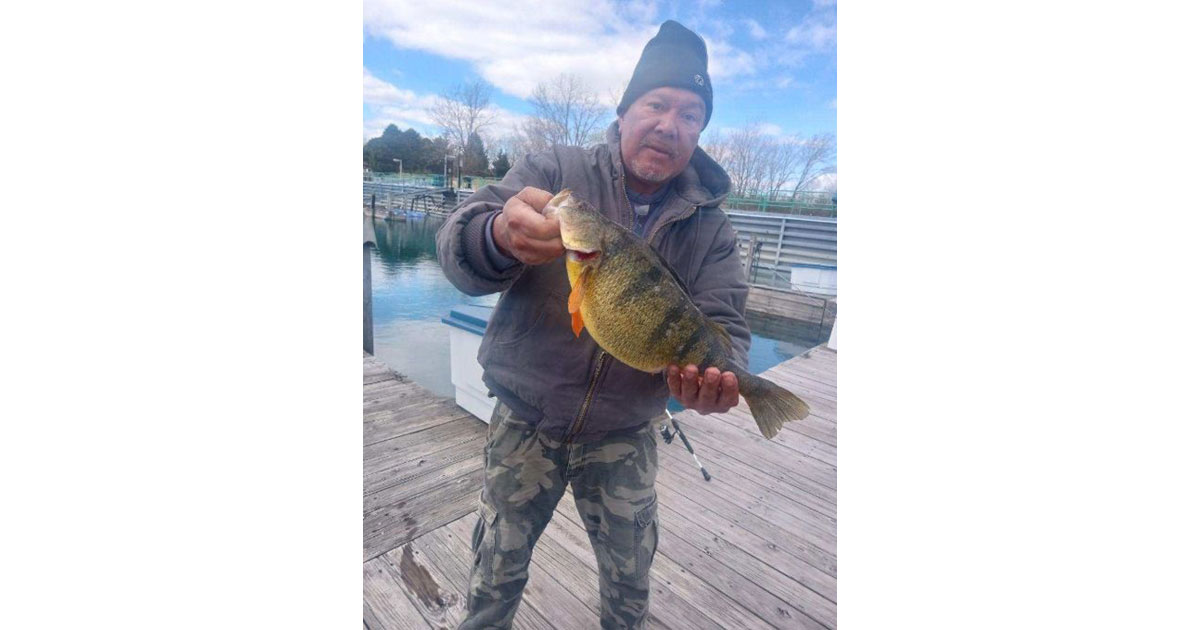 Blas Lara of Highland, Ind. with Record Yellow Perch
Blas Lara of Highland, Ind. with Record Yellow Perch
There are jumbo yellow perch in Lake Michigan…and then there’s this monster.
If you thought 12- inch perch were jumbos, Blas Lara of Highland, Ind. blows those away. His nearly 17 incher also blew away the Indiana’s state record with the 3.135 pounder caught during the Mayor McDermott’s Fishing Derby last weekend.
Lara’s yellow perch, caught from shore, broke the old record of 2 pounds, 8 ounces set in 1981 from a southern Indiana gravel pit.
He caught his giant while fishing a golden roach livebait under a bobber while actually fishing for smallmouth in the Hammond Marina. The fish was weighed at the Strack & VanTil Food Market.
Interestingly, that store sells yellow perch by the pound in its seafood section. If someone were to buy that record fish for dinner, it would cost him $53.26.
Yellow perch have begun their spawning run in Lake Michigan so that likely contributed to the weight. However, there are likely more giants like it swimming out there. Several 15 and 16 inchers were caught in northwest Indiana by boat anglers last winter.
Lake Michigan DNR Biologist Ben Dickinson said earlier this year that the growth rate among yellow perch has been astounding.
“We’re seeing 12- and 14-inch perch that are 6 to 8 years old,” Dickinson said. “In previous years, those fish were 10 to 14 years old.”
Why the rapid growth? Either there is more food to go around or, due to lower perch numbers over the past several years, there is less competition for food.
“When we began seeing the rapid growth numbers, we thought maybe something was off in our data, but Illinois biologists tell us that they are seeing the same thing.”
